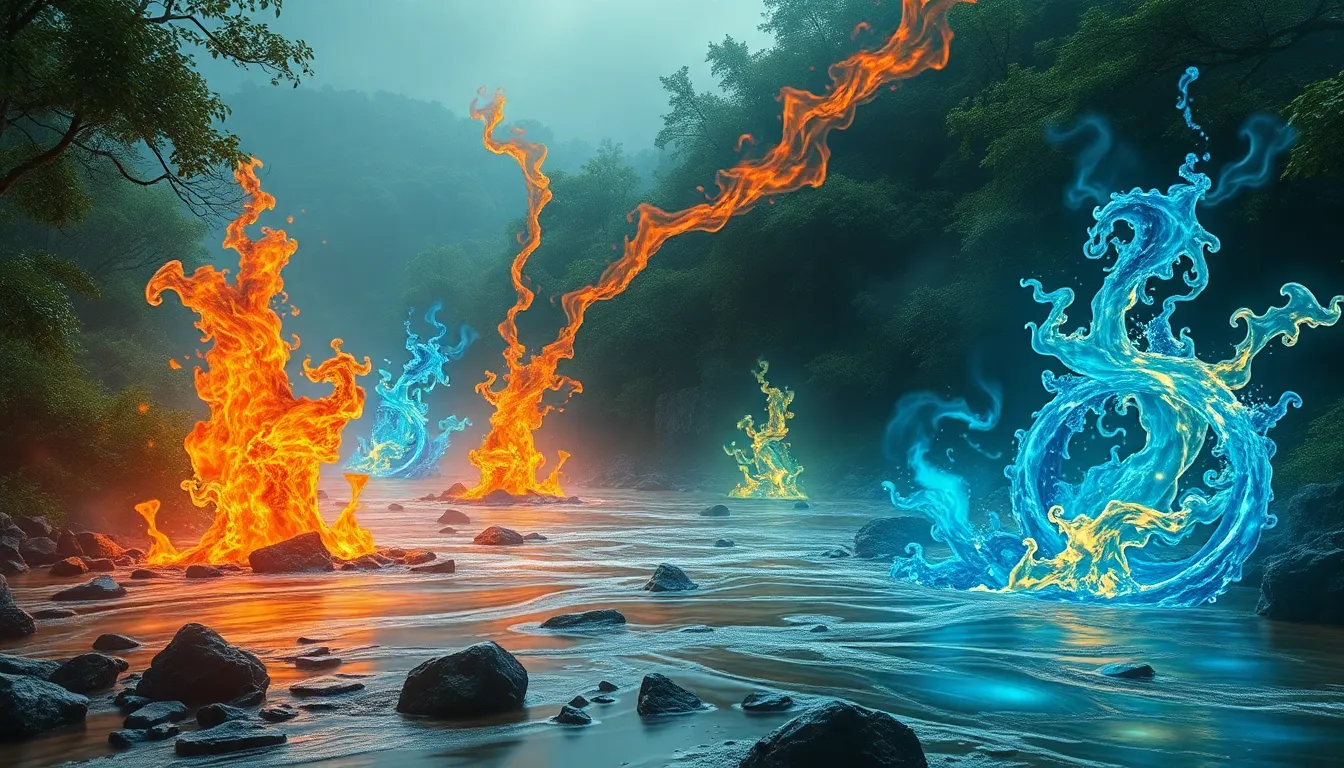The River of the Lost: Myths of Disappearing Travelers
I. Introduction
The River of the Lost is a captivating myth that speaks to the fears and fascinations associated with disappearing travelers. This myth encapsulates the idea of individuals vanishing into unknown waters, never to be seen again. Such stories have permeated cultures across the globe, highlighting a collective anxiety about the dangers that lurk in the wilderness and the mysteries of the unknown.
Myths surrounding disappearing travelers hold significant cultural importance, as they reflect deep-rooted fears and the human tendency to explore the great unknown. These narratives often serve as cautionary tales, warning individuals about the perils of venturing too far from the known world.
The purpose of this article is to delve into the origins, interpretations, and impacts of the River of the Lost myth, exploring its rich tapestry woven from various cultures and eras.
II. Historical Context of the River of the Lost
Throughout history, ancient civilizations have held various beliefs regarding lost travelers, often attributing their disappearances to supernatural forces. For many cultures, rivers represented the boundary between the living world and the afterlife.
Some key points in the historical context include:
- In ancient Egypt, the Nile was considered a sacred river that connected the mortal realm to the afterlife.
- Mesopotamian myths often depicted rivers as pathways to the underworld.
- In Native American traditions, rivers were seen as living entities with the power to guide or mislead travelers.
The association between water and the afterlife is a common thread in folklore, where rivers symbolize the transition from life to death, making them potent symbols in the mythology of lost travelers.
III. Common Themes in Myths of Disappearing Travelers
Several recurring themes can be identified in myths concerning disappearing travelers:
- Transformation and transcendence: Many myths depict travelers undergoing profound changes, either physically or spiritually, as they navigate these mysterious waters.
- The lure of the unknown: These stories often illustrate the tension between the temptation to explore the unknown and the dangers that accompany such ventures.
- The influence of nature: Nature’s unpredictability is a common theme, showcasing how the natural world can both shelter and threaten humanity.
IV. Notable Legends and Stories
Numerous legendary rivers and their associated myths have captivated imaginations for centuries:
A. The River Styx and Greek mythology
In Greek mythology, the River Styx is a boundary between the living and the dead. Souls are ferried across this river by Charon, the boatman, and those who cannot pay the toll remain in limbo.
B. The River Lethe and forgetfulness
The River Lethe, also in Greek mythology, is known as the river of forgetfulness. Souls who drink from its waters forget their earthly lives before reincarnation, embodying the theme of lost identity.
C. Regional variations: from the Amazon to the Nile
Different cultures have their own versions of the River of the Lost, each with unique characteristics. For instance:
- The Amazon River is often associated with tales of explorers who vanish in its depths.
- The Nile is frequently depicted in myths involving resurrection and the afterlife.
V. Psychological Interpretations of the Myths
The myths of disappearing travelers can be interpreted through a psychological lens, revealing underlying human fears and anxieties:
- Fear of the unknown: These myths reflect a deep-seated fear of what lies beyond our understanding and control.
- Lost identity: In modern society, the concept of losing oneself in unfamiliar surroundings resonates with many who feel disconnected in an increasingly complex world.
- Cultural anxieties: Myths echo cultural concerns about exploration, migration, and the risks associated with venturing into uncharted territories.
VI. The Role of Oral Tradition in Preserving Myths
Oral tradition has played a crucial role in the transmission of the River of the Lost myth across generations:
- Storytelling: This age-old practice allows communities to share their myths, ensuring their survival.
- Variations: The River of the Lost myth has evolved differently in various cultures, leading to a rich diversity of narratives.
- Modern technology: While technology has changed how stories are shared, it poses both challenges and opportunities for preserving these ancient tales.
VII. Modern Interpretations and Representations
In contemporary culture, the River of the Lost myth continues to inspire literature, art, and media:
- Literature: Many authors have incorporated these myths into their works, exploring themes of loss and discovery.
- Film and media: Movies often portray disappearing travelers, blending myth with modern storytelling.
- Resurgence of interest: There is a growing fascination with mythological themes in today’s narratives, reflecting a timeless human curiosity.
VIII. Real-life Cases of Disappearing Travelers
Real-life accounts of explorers and adventurers who vanished resonate with the River of the Lost myth:
- Historical accounts: Figures like Amelia Earhart and explorers of the Amazon have become part of the lore surrounding lost travelers.
- Intersection of myth and reality: These stories highlight how real disappearances can echo mythological themes.
- Unsolved disappearances: Investigations into these cases often reveal the challenges of understanding the unknown.
IX. Cultural Significance and Lessons from the Myths
The River of the Lost myth conveys important moral lessons:
- Respect for nature: These myths remind us of the power and unpredictability of the natural world.
- Adventure and risk: They highlight the balance between exploration and caution, urging travelers to consider the implications of their journeys.
X. Conclusion
The enduring power of the River of the Lost myth illustrates our fascination with the unknown and the timeless narratives of disappearing travelers. These myths remain relevant in today’s world, serving as reminders of our fears, aspirations, and the mysteries that lie beyond the horizon.
As we continue to explore and venture into new territories, the lessons imparted by these ancient stories will guide us, encouraging respect for the mysteries of nature and the journeys we undertake.



